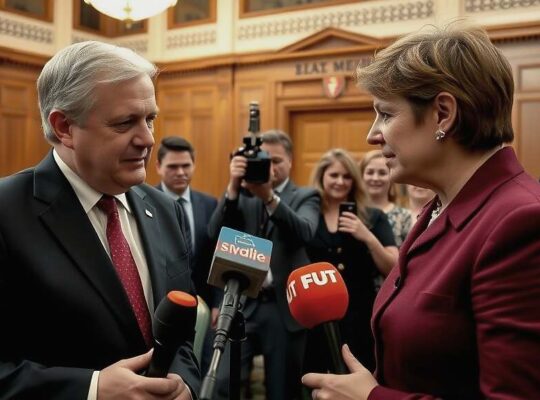Negotiations surrounding the planned 2035 ban on internal combustion engine vehicles in Germany are entering a potentially pivotal phase, with the Social Democratic Party (SPD) signaling a willingness to consider exemptions as concerns over job security escalate. SPD parliamentary group leader Matthias Miersch has indicated a capacity for compromise with the Christian Union (CDU/CSU), a shift that underscores the political fragility of Berlin’s ambitious climate transition agenda.
Miersch’s comments, made to the “Handelsblatt” newspaper, explicitly tie any flexibility on the 2035 deadline to commitments from automotive companies. He emphasized the need for “concrete job security measures” during the shift to electric mobility. These commitments include assurances of ongoing production within Germany, investment in new technologies and binding employment guarantees negotiated with worker’s councils. Companies demonstrating such a dedication, Miersch suggested, should reasonably expect political support for extended transition periods and potential adjustments, particularly regarding technologies like plug-in hybrids and range extenders.
The recent automotive dialogue on October 9th concluded without resolution, highlighting the deep divisions on this issue. CSU leader Markus Söder reportedly pressed for a postponement of the 2035 ban, a proposal definitively rejected by Miersch. The SPD leader sharply criticized the suggestion that abandoning the ban would automatically safeguard jobs, characterizing it as misleading to the public.
Beyond the debate over transition timelines, Miersch also detailed plans for a new electric vehicle purchase premium targeted at lower and middle-income households. He stressed the importance of a tiered system, explicitly excluding high-income earners or those paying wealth taxes from eligibility. “It’s absolutely right to include a tiered approach” Miersch stated, emphasizing the program’s intent to facilitate the shift to electric mobility for “ordinary earners”. This targeted approach reflects a growing recognition within the governing coalition that broader public acceptance and equitable access are critical to the success of Germany’s electric vehicle strategy, but simultaneously exposes the political challenges in balancing environmental goals with socioeconomic concerns and potential social backlash.












